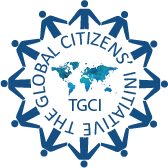In this issue, we examine the following:
- The influence of the metaverse on geopolitics
- Five ways the UN can position itself as part of the solution to the ongoing global trust crisis
————————————————————————————————————–
“The concept of the metaverse continues to gain momentum. Since it caught the world’s attention several years ago, the metaverse has been driving technology developments, corporate rebranding and a search for killer applications that facilitate access to virtual worlds,” write Paul Triolo and Anarkalee Perera in The Metaverse Is Already a Geopolitical Challenge.
“But what about the geopolitics of the metaverses? How could the age of increasing decentralization and VR/AR affect how foreign policy and international diplomacy are conducted?”
Paul Triolo is senior vice president and global technology policy lead at Albright Stonebridge Group.
Anarkalee Perera is a Director with the Technology Policy and Strategy Group at ASG, where she helps advise global clients on AI regulation, platform policy, and emerging tech.
————————————————————————————————————–
Inaction on climate. The unequal response to Covid-19. Bailing out banks instead of helping the least-developed countries. The failure to prevent atrocities in Palestine, Myanmar, Sri Lanka, Rwanda, and Sudan: The global trust crisis has become existential, “fueling polarization within and between countries, undermining our ability to address the poly-crisis engulfing the world,” writes Natalie Samarasinghe in The Global Trust Crisis: 5 Ways the UN Can Be Part of the Solution. And yet the UN can still position itself firmly as part of the solution to this global crisis.
Natalie Samarasinghe is the global director of advocacy for the Open Society Foundations. Previously, she was the executive director of the United Nations Association-UK, the first woman to have this role, and a co-founder of the 1 for 7 Billion campaign.

